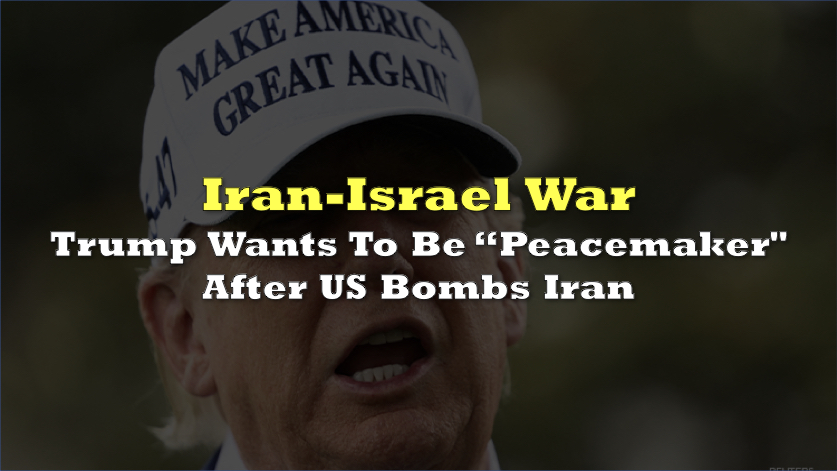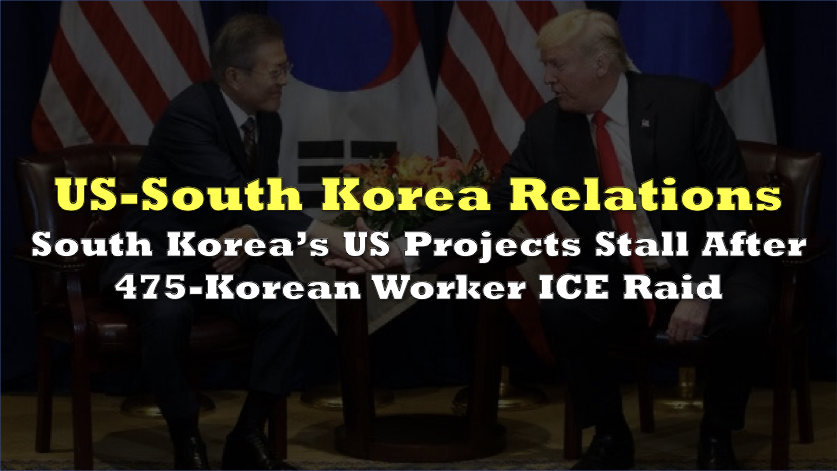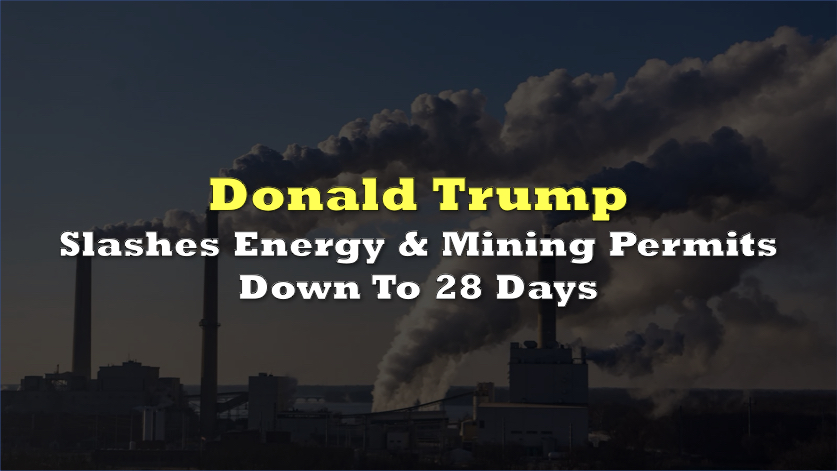President Donald Trump ran on the boast that he would be the Middle East’s “peacemaker and unifier.” Yet late Saturday, he greenlit Operation Midnight Hammer, sending seven B-2 Spirit bombers and more than 75 precision weapons against Iran’s Fordow, Natanz and Isfahan enrichment complexes—the first direct US strikes on Iranian soil in nearly half a century.
“A full payload of BOMBS was dropped … Now is the time for peace,” he posted on Truth Social once the last aircraft cleared Iranian airspace, framing devastation as a prelude to diplomacy.
BREAKING: President Trump says the US has completed three attacks on nuclear sites in Iran.
— The Kobeissi Letter (@KobeissiLetter) June 21, 2025
The US is officially striking Iran. pic.twitter.com/ArEKKA0onV
In his January inaugural address Trump pledged to “measure our success not only by the battles we win but by the wars we never get into,” preluded with a campaign promise to “prevent World War Three.” Following Israel’s attack on Iran and the subsequent retaliation, Trump released a threat last week that he would decide on military action “within the next two weeks,” a public clock that in practice expired after just 48 hours.
The road to WW3
CNN transcripts show the president and his national security team began planning in early June at Camp David, weighing how to collapse Fordow without repeating Iraq-style regime change. By June 18, unsheltered aircraft were quietly flown out of Al Udeid Air Base in Qatar, and US warships slipped from Bahrain—standard “prudent precaution” measures when strike orders are pending.
Pentagon briefers said the mission used the Massive Ordnance Penetrator, a 30,000-pound bunker-buster, for the first time in combat. One set of B-2s flew east from Whiteman AFB; another flew west as decoys. In all, 125 aircraft, a cruise-missile-firing submarine, and multiple refuelling tracks delivered the largest B-2 strike package since 2001.
“Iran’s fighters did not fly, and its SAM batteries never saw us,” Joint Chiefs Chair Gen. Dan Caine boasted.
Washington insists the operation was “limited to Iran’s nuclear program,” yet the proliferation risk it sought to curb remains opaque. The International Atomic Energy Agency reported no radiation spikes but conceded it cannot verify what lies beneath Fordow’s 80 metres of rock.
Former Canadian defence minister Jason Kenney praised the US strikes, calling them “the right thing” and thanking American and Israeli forces for “protecting global peace and security.”
Credit to the United States for stepping up and doing the right thing.
— Jason Kenney 🇨🇦🇺🇦🇮🇱 (@jkenney) June 22, 2025
Allowing the theocratic terrorists of the Iranian regime to obtain nuclear weapons would be a disaster for humanity.
Thank-you to the brave men & women of the @usairforce and the @IDF for protecting global… pic.twitter.com/OpqslvqH0A
Prime Minister Mark Carney struck a more measured tone, acknowledging the threat posed by Iran’s nuclear program while emphasizing the need for restraint.
“While US military action taken last night was designed to alleviate that threat, the situation in the Middle East remains highly volatile,” Carney said. He called on all parties to return to the negotiating table, adding that de-escalation should extend to other conflict zones including Gaza.
Iran’s nuclear programme is a grave threat to international security, and Canada has been consistently clear that Iran can never be allowed to develop a nuclear weapon.
— Mark Carney (@MarkJCarney) June 22, 2025
While U.S. military action taken last night was designed to alleviate that threat, the situation in the…
Saudi Arabia’s Foreign Ministry released a carefully worded statement expressing “deep concern” over the US strikes on Iranian nuclear sites. While it did not directly condemn Washington’s actions, the Kingdom reiterated its opposition to any violations of Iranian sovereignty and urged “maximum restraint” from all sides.
Following yesterday’s series of strikes by the United States against nuclear facilities inside Iran, the Saudi Foreign Ministry released a statement expressing their concern with the situation, urging restraint and de-escalation, but did not go as far as directly condemning the… pic.twitter.com/afxwrcVDp3
— OSINTdefender (@sentdefender) June 22, 2025
Turkish President Recep Tayyip Erdoğan condemned the US and Israeli strikes on Iran as reckless acts of “state terrorism,” likening them to the spark that ignited World War II. In a strongly worded statement, Erdoğan accused Israeli Prime Minister Benjamin Netanyahu of dragging the entire region toward “chaos, fire, and bloodshed” to fulfill what he called “Zionist ambitions,” and defended Iran’s right to retaliate under the principle of self-defense.
He also criticized the West’s double standards on nuclear transparency, pointing out that Israel—unlike Iran—is not a signatory to the Non-Proliferation Treaty yet faces no scrutiny.
Bundan tam 90 yıl önce Hitler’in çaktığı kıvılcım, nasıl ki Pasifik’ten Atlantik’e, Hint Okyanusu’ndan Kuzey Denizi’ne kadar bütün dünyayı ateşe attıysa bugün Netanyahu’nun siyonist emelleri de bölgemizi ve tüm dünyayı büyük bir felakete sürüklemekten başka bir gaye taşımıyor.…
— Recep Tayyip Erdoğan (@RTErdogan) June 21, 2025
Pushback
Supreme Leader Ali Khamenei, reportedly hiding in a hardened bunker, has dispatched his foreign minister to Moscow seeking deeper Russian backing.
The Iranian leader has already warned Trump at last week’s G7 summit that it would activate sleeper-cell attacks inside the US if its nuclear sites were struck, prompting a nationwide security alert and a DHS warning of a “heightened threat environment.”
Opposition source claims that a number of former Iranian officials, including Hassan Rouhani, Ali Larijani, and Sadeq Larijani, have tried to contact Supreme Leader Ali Khamenei and asked him to enter into direct negotiations with the US , but Khamenei is unavailable and only a…
— Michael A. Horowitz (@michaelh992) June 22, 2025
According to NBC News, Iran delivered a communiqué to U.S. President Trump through an intermediary at the G7 Summit last week in Canada, threatening to activate sleeper-cell terrorist groups inside the United States if it or its nuclear facilities were attacked. The Trump… pic.twitter.com/nvyfMPbDZX
— OSINTdefender (@sentdefender) June 22, 2025
Iran’s foreign minister condemned the US strikes as a “grave violation of the UN Charter” and warned that “all options” remain on the table, as he flew to Moscow for urgent consultations with President Vladimir Putin.
The first official response by the Iranian government to tonight’s U.S. strikes against nuclear sites inside Iran, in a statement by Iran’s Foreign Minister Abbas Araghchi:
— OSINTdefender (@sentdefender) June 22, 2025
“The United States, a permanent member of the United Nations Security Council, has committed a grave… pic.twitter.com/ULEIL0GTj4
American facilities across the Middle East are now on high alert. Iranian and Shiite militia channels are calling this a declaration of war. Iranian and Iraqi militia retaliation is almost certainly imminent.
— OSINT Aggregator (@AggregateOsint) June 22, 2025
The visit comes amid escalating rhetoric from former Russian President Dmitry Medvedev, who claimed the strikes caused only minor damage and that “a number of countries are ready to directly supply Iran with nuclear warheads.” He added that Iran’s regime has emerged politically stronger, while the US and Israel face growing global backlash and regional instability.
The Iranian Foreign Minister is flying to Moscow today for consultations and will meet with putin tomorrow.
— Jürgen Nauditt 🇩🇪🇺🇦 (@jurgen_nauditt) June 22, 2025
Dmitry Medvedev: "A number of countries are ready to supply Iran with nuclear weapons."
What have the Americans accomplished with their nighttime strikes on three nuclear sites in Iran?
— Dmitry Medvedev (@MedvedevRussiaE) June 22, 2025
1. Critical infrastructure of the nuclear fuel cycle appears to have been unaffected or sustained only minor damage.
The White House, meanwhile, used back channels to assure Iran that no follow-on raids are planned—a pledge undercut hours later when Trump mused on social media that “regime change” might be necessary to “MAKE IRAN GREAT AGAIN.”
US REACHED OUT TO IRAN DIPLOMATICALLY SATURDAY TO SAY THE STRIKES ARE ALL THAT IS PLANNED, REGIME CHANGE NOT PLANNED:CBS
— *Walter Bloomberg (@DeItaone) June 22, 2025

Repercussions
Iran’s parliament responded by endorsing a plan to close the Strait of Hormuz, the world’s most critical oil chokepoint through which roughly 20% of seaborne crude flows daily. The measure just awaits final approval from Iran’s Supreme National Security Council.
BREAKING NEWS
— Gold Telegraph ⚡ (@GoldTelegraph_) June 22, 2025
IRAN PARLIAMENT REPORTEDLY BACKS CLOSING STRAIT OF HORMUZ
Big.
This is not gonna end up well for Iran https://t.co/RciQvdg5ZZ
— Def Mon (@DefMon3) June 22, 2025
Secretary of State Marco Rubio dismissed the threat as “economic suicide,” yet real-time shipping data already shows crude tankers rerouting away from the Gulf. Brent crude surged past $81 a barrel—its highest level since January—as traders priced in supply disruption risk, with energy analysts warning a full closure could send oil past $110 and trigger a global inflation spike.
Oil tankers are just making a straight U Turn at the Strait of Hormuz.
— Spencer Hakimian (@SpencerHakimian) June 22, 2025
Nobody going near it right now.
Mess.
Oil 🚀 pic.twitter.com/Xdq7jaOJZ9
Chinese are turning around as well…. this is something pic.twitter.com/Cab1ABZgGv
— Oil Bandit 🛢️ (@OilCfd) June 22, 2025
In diplomatic channels, the escalation quickly spilled into the halls of the United Nations. Russia, China, and Pakistan submitted a draft Security Council resolution calling for an immediate and unconditional ceasefire across the Middle East, restoration of full IAEA inspections, and restraint by “all permanent members.” US officials reportedly privately acknowledge the resolution will be vetoed but argue that it frames a false equivalency between lawful non-proliferation enforcement and Tehran’s escalation.
RUSSIA, CHINA, PAKISTAN PROPOSE DRAFT UN SECURITY COUNCIL RESOLUTION CALLING FOR IMMEDIATE, UNCONDITIONAL CEASEFIRE IN MIDDLE EAST – DIPLOMATS
— *Walter Bloomberg (@DeItaone) June 22, 2025
Interestingly, Pakistan has formally nominated Trump for the Nobel Peace Prize, crediting his “stellar statesmanship” in brokering a ceasefire between India and Pakistan during their most serious military escalation since 1971.
Trump, referencing the move on Truth Social, claimed he wouldn’t receive a Nobel “no matter what I do,” even with the Iran-Israel conflict.

The missing uranium
IAEA chief Rafael Grossi told the Security Council the agency has no visibility on Iran’s near-bomb-grade stockpile. A senior Iranian source told Reuters that most 60%-enriched uranium had been removed from the site days earlier.
Iran may have removed most enriched uranium from Fordow before US strike, Guardian cites Reuters. Senior Iranian sources told Reuters much high-enriched uranium was moved beforehand.https://t.co/EOdxC1oBlt https://t.co/mLULY9gmFR pic.twitter.com/FjzhaS0ck3
— WarTranslated (@wartranslated) June 22, 2025
Washington, however, concedes it does not know where the uranium now sits. Until inspectors regain access, both claims are unverifiable.
U.S. Officials Concede They Don’t Know Whereabouts of Iran’s Uranium Stockpile
— Julia Davis (@JuliaDavisNews) June 23, 2025
Rafael Mariano Grossi of the International Atomic Energy Agency said he believed Tehran’s stockpile of near-bomb-grade nuclear material had been moved before the strikes.https://t.co/L52YODbq3e
A senior Israeli official told Axios that if a nuclear deal follows the US strikes, it could mark “the end of the story” for Iran’s program—but warned that if Tehran rebuilds, Israel will strike again, as it has in Syria and Lebanon.
A senior Israeli official told Axios that if, following tonight’s American strikes against Iranian nuclear facilities, a good agreement is now able to be reached with Iran, it will be the “end of the story” for the Iranian nuclear program, adding that if a nuclear agreement is…
— OSINTdefender (@sentdefender) June 22, 2025
Despite the fanfare surrounding the strikes, even Israeli officials are hedging their assessments. Netanyahu has allegedly said the full extent of the damage remains unclear, while Israeli intelligence figures suggest that Natanz may have been “completely wiped out,” and that Tehran has lost its fastest path to a bomb.
However, Netanyahu also reportedly claimed that it has intelligence on the enriched uranium supply that was removed.
*NETANYAHU: EXTENT OF DAMAGE STILL TO BE SEEN
— Spencer Hakimian (@SpencerHakimian) June 22, 2025
And now, Israel gets in on the hedging.
Seems a little shady TBH.
NETANYAHU: WE HAVE 'INTERESTING INTEL' ON LOCATION OF IRAN'S 60% ENRICHED URANIUM
— *Walter Bloomberg (@DeItaone) June 22, 2025
Iran, for its part, claims the affected sites are already being rebuilt and that nuclear activity will resume “with greater power,” reinforcing fears that the strikes may have delayed rather than destroyed the program.
IRAN'S ATOMIC ENERGY AGENCY SAYS NUCLEAR SITES QUICKLY BEING REBUILT, ACTIVITY TO CONTINUE WITH GREATER POWER – IRANIAN MEDIA
— *Walter Bloomberg (@DeItaone) June 22, 2025
I'm gonna say something a bit different from what that source told the New York Times. He said Fordo was damaged Severely but wasn't destroyed. So I'll tell you what Israel's current assessment is.
— Amit Segal (@AmitSegal) June 22, 2025
First off all Natanz was completely wiped out. For Fordo and Isfahan, we're… pic.twitter.com/KQ9OTlh7Oo
Information for this story was found via MSNBC, CNN, Time, and the sources mentioned. The author has no securities or affiliations related to the organizations discussed. Not a recommendation to buy or sell. Always do additional research and consult a professional before purchasing a security. The author holds no licenses.










One Response
It is your job as the leader of the free world to broker peace and keep it. It is not your job to escalate wars. Nor is it an expectation that you receive peace prizes. You should not care about that. The job is what it is. Do the job properly with grace and wisdom, and stop whining about prizes. Your whining is simply pathetic and your actions reek of incompetence and hysterics.